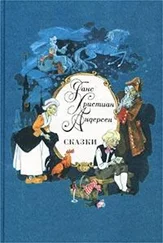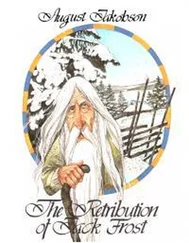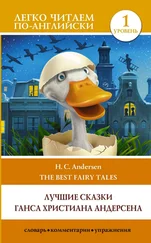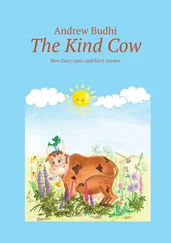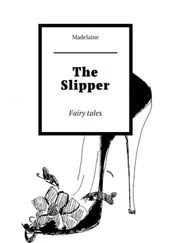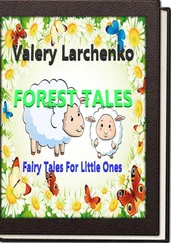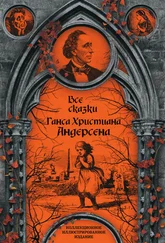Ганс Андерсен - Fairy Tales
Здесь есть возможность читать онлайн «Ганс Андерсен - Fairy Tales» весь текст электронной книги совершенно бесплатно (целиком полную версию без сокращений). В некоторых случаях можно слушать аудио, скачать через торрент в формате fb2 и присутствует краткое содержание. Жанр: Старинная литература, на английском языке. Описание произведения, (предисловие) а так же отзывы посетителей доступны на портале библиотеки ЛибКат.
- Название:Fairy Tales
- Автор:
- Жанр:
- Год:неизвестен
- ISBN:нет данных
- Рейтинг книги:4 / 5. Голосов: 1
-
Избранное:Добавить в избранное
- Отзывы:
-
Ваша оценка:
- 80
- 1
- 2
- 3
- 4
- 5
Fairy Tales: краткое содержание, описание и аннотация
Предлагаем к чтению аннотацию, описание, краткое содержание или предисловие (зависит от того, что написал сам автор книги «Fairy Tales»). Если вы не нашли необходимую информацию о книге — напишите в комментариях, мы постараемся отыскать её.
Fairy Tales — читать онлайн бесплатно полную книгу (весь текст) целиком
Ниже представлен текст книги, разбитый по страницам. Система сохранения места последней прочитанной страницы, позволяет с удобством читать онлайн бесплатно книгу «Fairy Tales», без необходимости каждый раз заново искать на чём Вы остановились. Поставьте закладку, и сможете в любой момент перейти на страницу, на которой закончили чтение.
Интервал:
Закладка:
“I believe all of it!” I said. “Go away! Go away!”
“Well, if you’ll give up being a poet, never set verse on paper, blackboard or any other writing material again, then I’ll let you go. But I’ll come back if you start writing.”
“I swear!” I said. “Just never let me see or sense you ever again!”
“You will see me, but in a plumper figure, more dear to you than I am now! You will see me as Aunt Mille, and I’ll say ‘Write, my sweet boy! You are a great poet, perhaps the greatest we have!’ But if you believe me and start writing, then I’ll set your verses to music and play them on your mouth organ! You sweet child!—Remember me when you see Aunt Mille!”
And then she disappeared.
As she left, I felt a glowing stab of the awl in my cheekbone, but it soon subsided. I felt like I was gliding on soft water, saw white water lilies with their wide green leaves bending, sinking down under me, then withering, dissolving—and I sank with them, dissolving in peace and rest.
“Die, melt away like snow” sang and clang in the water. “Dissolve into the clouds, drift away like the clouds!”
Great lighted names shone down to me through the water, inscriptions on waving victory banners—Immortality’s patent applications—written on Mayfly wings.
My sleep was deep, sleep without dreams. I didn’t hear the whistling wind, the slamming gate, the neighbor’s ringing portal bell, or the lodger’s heavy exercising.
Such bliss!
Then a gust of wind blew open the locked door to where Auntie was sleeping. She leapt up, put on her shoes and clothes, and came in to me.
I was sleeping like an angel of God, she said, and she didn’t have the heart to wake me.
I awoke on my own, opened my eyes and had completely forgotten that Auntie was in the house. But I soon remembered it, and remembered my toothache vision. Dream and reality merged together.
“I don’t suppose you wrote anything last night, after we said good night to each other?” she asked. “I wish you had! You’re my poet, now and always.”
It seemed to me that she smiled so cunningly. I wasn’t sure if it was the good Auntie Mille, who loved me, or the terrible figure I had sworn to in the night.
“Did you write anything, dear child?”
“No, no!” I cried. “You are Aunt Mille, aren’t you?”
“Who else?” she said. And it was Aunt Mille.
She kissed me, got a cab, and went home.
I wrote down what’s written here. It’s not in verse, and it will never be printed—.

Here the manuscript ended.
My young friend, the future greengrocer apprentice, couldn’t procure the missing pages. They had gone into the world as wrapping paper around salt herring, butter and green soap. They had fulfilled their destiny.
The brewer is dead. Auntie is dead. And the student is dead, he whose sparks of poetry went into the waste barrel.
Everything goes to waste.
And that’s the end of the story, the story about Auntie Toothache.
NOTES
1 Pen name of German writer Johann Paul Friedrich Richter (1763-1825).
2 Equating the toothache with the devil, Andersen adds the Latin infernalis (of hell) to create his title for the personified toothache.
THE CRIPPLE
THERE WAS AN OLD estate with an excellent young master and mistress. They had blessings and riches. They enjoyed themselves, and they also did a lot of good. They wanted everyone to be as happy as they themselves were.
On Christmas Eve a beautiful, decorated Christmas tree stood in the old great hall. Fires were burning in the fireplaces, and the old portraits were decorated with spruce branches. The master and mistress and their guests gathered here, and there was singing and dancing.
There had already been Christmas joy in the servants’ hall earlier in the evening. Here too was a big spruce tree with lighted red and white candles, small Danish flags, cut-out paper swans, and paper hearts woven of colorful paper filled with goodies. The poor children of the district were invited, and each had its mother along. They didn’t look at the tree much, but at the tables with gifts. There was wool and linen cloth for sewing dresses and trousers. That’s what the mothers and older children looked at. Only the very little ones stretched out their hands towards the candles, gold tinsel, and flags.
The gathering took place early in the afternoon. Everyone ate Christmas pudding and roast goose with red cabbage. And when the tree had been looked at, and the gifts distributed, everyone got a little cup of punch and apple fritters filled with apples.
Then they went home to their poor rooms and talked about “the good way of life,” that is to say, the good food, and the gifts were once again carefully inspected.
Garden-Kirsten and Garden-Ole were a married couple who kept their home and made their living by weeding and tending the garden on the estate. At each Christmas celebration they always got their share of presents. They had five children, and all five were clothed by the master and mistress.
“They are generous people, our master and mistress,” they said. “But they can afford it, and they take pleasure in it.”
“There’s good clothing for four of the children,” said Garden-Ole. “But why isn’t there anything here for the cripple? They usually remember him too, even though he can’t go to the party.”
It was their oldest child they called “the cripple.” His name was actually Hans.
When he was little he was the quickest and most lively of children, but he had suddenly became “limp legged” as they called it. He could not stand or walk, and he had been bedridden for five years.
“Well, I did get something for him too,” said his mother. “But it’s nothing much, just a book for him to read.”
“He won’t get much out of that,” said his father.
But Hans was happy to get it. He was a really bright boy who liked to read, but he also spent his time working. He did as much as someone who’s always in bed could to make himself useful. He had busy hands and used them to knit wool stockings, even whole bedspreads. The mistress on the estate had praised them and bought them.
The book that Hans had received was a book of fairy tales. There was much to read and much to think about in it.
“That’s of no use in this house!” said his parents. “But let him read. It will pass the time, and he can’t always be knitting stockings.”
Spring came, and flowers and greenery began to sprout. Weeds too, as you can certainly call the nettles, even if they are so nicely talked about in the hymn: “Tho’ all the kings on earth did show
Their upmost strength and power,
They could not make a nettle grow
Nor mend a broken flower ” 1
There was a lot to do in the manor garden, not just for the gardener and his apprentices, but also for Garden-Kirsten and Garden-Ole.
“It’s total drudgery,” they said, “and when we have raked the paths and gotten them really nice, they immediately are walked on again and messed up. There’s a constant stream of strangers here on the estate. What a lot it must cost! But the master and mistress are rich.”
“Things are oddly distributed,” said Ole. “The pastor says we’re all the Lord’s children. Why is there such a difference between us then?”
“It’s because of the fall from grace,” said Kirsten.
They talked about it again in the evening, where cripple Hans was lying with his fairy tale book.
Straitened circumstances, drudgery, and toil had hardened the parents’ hands and also hardened their judgment and opinions. They couldn’t manage, couldn’t deal with things, and the more they talked, the more disgruntled and angry they became.
Читать дальшеИнтервал:
Закладка:
Похожие книги на «Fairy Tales»
Представляем Вашему вниманию похожие книги на «Fairy Tales» списком для выбора. Мы отобрали схожую по названию и смыслу литературу в надежде предоставить читателям больше вариантов отыскать новые, интересные, ещё непрочитанные произведения.
Обсуждение, отзывы о книге «Fairy Tales» и просто собственные мнения читателей. Оставьте ваши комментарии, напишите, что Вы думаете о произведении, его смысле или главных героях. Укажите что конкретно понравилось, а что нет, и почему Вы так считаете.

![Ганс Андерсен - Ганс Чурбан[другой перевод]](/books/95480/gans-andersen-gans-churban-drugoj-perevod-thumb.webp)
